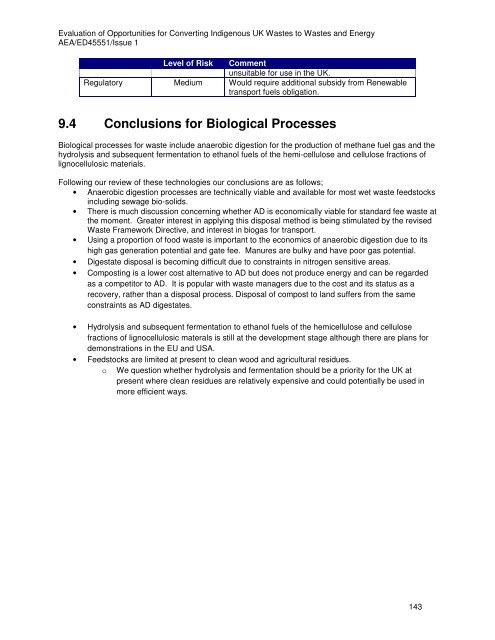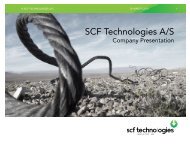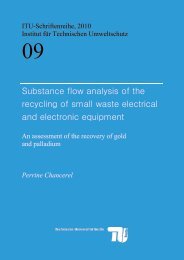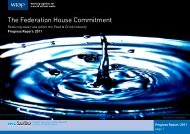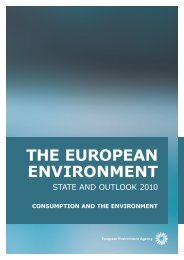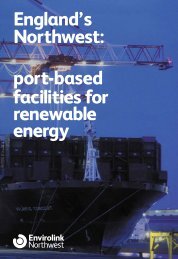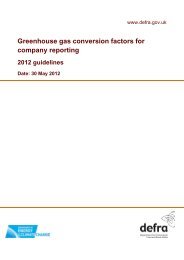to read the full report - Ecolateral by Peter Jones
to read the full report - Ecolateral by Peter Jones
to read the full report - Ecolateral by Peter Jones
Create successful ePaper yourself
Turn your PDF publications into a flip-book with our unique Google optimized e-Paper software.
Evaluation of Opportunities for Converting Indigenous UK Wastes <strong>to</strong> Wastes and Energy<br />
AEA/ED45551/Issue 1<br />
Level of Risk Comment<br />
unsuitable for use in <strong>the</strong> UK.<br />
Regula<strong>to</strong>ry Medium Would require additional subsidy from Renewable<br />
transport fuels obligation.<br />
9.4 Conclusions for Biological Processes<br />
Biological processes for waste include anaerobic digestion for <strong>the</strong> production of methane fuel gas and <strong>the</strong><br />
hydrolysis and subsequent fermentation <strong>to</strong> ethanol fuels of <strong>the</strong> hemi-cellulose and cellulose fractions of<br />
lignocellulosic materials.<br />
Following our review of <strong>the</strong>se technologies our conclusions are as follows;<br />
• Anaerobic digestion processes are technically viable and available for most wet waste feeds<strong>to</strong>cks<br />
including sewage bio-solids.<br />
• There is much discussion concerning whe<strong>the</strong>r AD is economically viable for standard fee waste at<br />
<strong>the</strong> moment. Greater interest in applying this disposal method is being stimulated <strong>by</strong> <strong>the</strong> revised<br />
Waste Framework Directive, and interest in biogas for transport.<br />
• Using a proportion of food waste is important <strong>to</strong> <strong>the</strong> economics of anaerobic digestion due <strong>to</strong> its<br />
high gas generation potential and gate fee. Manures are bulky and have poor gas potential.<br />
• Digestate disposal is becoming difficult due <strong>to</strong> constraints in nitrogen sensitive areas.<br />
• Composting is a lower cost alternative <strong>to</strong> AD but does not produce energy and can be regarded<br />
as a competi<strong>to</strong>r <strong>to</strong> AD. It is popular with waste managers due <strong>to</strong> <strong>the</strong> cost and its status as a<br />
recovery, ra<strong>the</strong>r than a disposal process. Disposal of compost <strong>to</strong> land suffers from <strong>the</strong> same<br />
constraints as AD digestates.<br />
• Hydrolysis and subsequent fermentation <strong>to</strong> ethanol fuels of <strong>the</strong> hemicellulose and cellulose<br />
fractions of lignocellulosic materals is still at <strong>the</strong> development stage although <strong>the</strong>re are plans for<br />
demonstrations in <strong>the</strong> EU and USA.<br />
• Feeds<strong>to</strong>cks are limited at present <strong>to</strong> clean wood and agricultural residues.<br />
o We question whe<strong>the</strong>r hydrolysis and fermentation should be a priority for <strong>the</strong> UK at<br />
present where clean residues are relatively expensive and could potentially be used in<br />
more efficient ways.<br />
143


